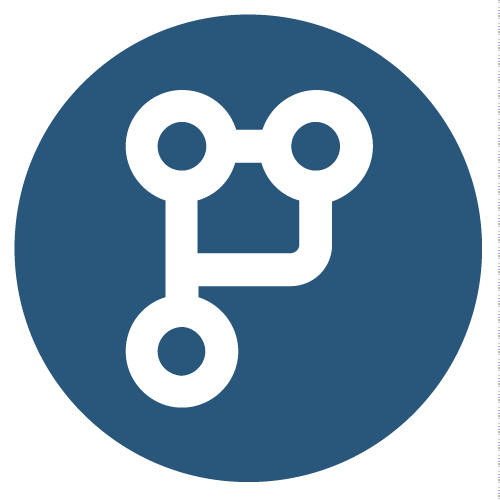
In the realm of Python development, managing project dependencies is a critical aspect of ensuring your application’s security, performance, and reliability. Traditionally, the requirements.txt file has been the cornerstone of this process, acting as a simple yet effective method for specifying project dependencies. However, as Python projects become more complex and security concerns grow, developers are seeking more robust methods to manage and secure dependencies. This post explores why moving away from requirements.txt to more advanced tools and practices can significantly enhance your project’s security posture.
Understanding the Limitations of requirements.txt
The requirements.txt file is straightforward to use: it lists the libraries your project depends on, potentially including versions. You can generate it with pip freeze > requirements.txt and install from it using pip install -r requirements.txt. While its simplicity is appealing, this approach has notable limitations:
Lack of Dependency Resolution: While not an explicit limitation of
requirements.txt, usingpip install -r requirements.txtdoes not offer a true dependency resolution mechanism. It installs packages in the order they are listed, potentially leading to version conflicts or incompatibilities that are not detected until runtime.No Sub-dependency Management: It specifies top-level dependencies without a clear, automated way to manage sub-dependencies, their versions, and potential security vulnerabilities within them.
Manual update: Using a
requirements.txtfile in this way requires a user to manually update dependencies. If new packages or package versions are brought in to the project, a user has to remember to update therequirements.txtfile with the new package and all of its dependencies. If the file were to automatically update, then it will more than likely get updated correctly with the rest of the developer’s changes.
These limitations underscore the need for a more dynamic and secure approach to dependency management in Python projects.
Embracing Modern Dependency Management Tools
To overcome these challenges, the Python community has developed several advanced tools that offer improved dependency management and security. Two of the most prominent tools are pipenv and Poetry.
Pipenv: “The Python Development Workflow for Humans”
Pipenv is a packaging tool that brings the best of all packaging worlds to the Python world. It automatically creates and manages a virtualenv for your projects, as well as adding/removing packages from your Pipfile as you install/uninstall packages. It also generates the Pipfile.lock, which is used to produce deterministic builds and create a snapshot of your project’s dependencies.
Key Features:
Deterministic Builds: The
Pipfile.lockensures that builds are deterministic and repeatable across different environments by specifying exact versions of both dependencies and sub-dependencies.Security Checks:
Pipenvchecks your dependencies for known security vulnerabilities, providing a higher level of security assurance for your projects.Dependency Resolution: It offers a sophisticated dependency resolution mechanism, ensuring that all package dependencies are compatible.
To start using Pipenv, you can install it via pip install pipenv and then run pipenv install to create a Pipfile for your project. If you already have a requirements.txt file, pipenv will include all of your existing dependencies in the new Pipfile for easy migration!
Poetry: “Dependency Management and Packaging Made Easy”
Poetry is another powerful tool designed to handle dependency management and packaging in Python. It seeks to provide an all-in-one solution for project management, from dependency declaration to package publishing.
Key Features:
PyProject.toml Configuration:
Poetryuses thepyproject.tomlfile for configuration, following the PEP 518 standard. This makes the project setup more standardized and readable.Integrated Package Management: Beyond managing dependencies,
Poetryalso simplifies the process of building and publishing packages to PyPI, making it an excellent choice for library developers.Version Resolution and Locking: Similar to
Pipenv,Poetrygenerates apoetry.lockfile to lock the project’s dependencies, ensuring consistent environments and deployments.
To get started with Poetry, you can install it by following the instructions on its official website.
Best Practices for Secure Dependency Management
Regardless of the tool you choose, following best practices in dependency management can significantly enhance your project’s security:
Regularly Update Dependencies: Use your tool’s update mechanism (e.g.,
pipenv update,poetry update) to keep dependencies up-to-date and mitigate vulnerabilities.Audit Dependencies: Regularly audit your project’s dependencies for known vulnerabilities.
pipenvitself has a built-in mechanism for this (pipenv check), and additional services like Snyk can provide further insights.Specify Versions Conservatively: Specify dependency versions using version ranges that allow for bug fixes and security patches while avoiding potential breaking changes.
Isolate Environments: Use virtual environments to isolate project dependencies and avoid conflicts between projects.
Conclusion
While pip install and the requirements.txt file has served many Python projects well over the years, the evolving landscape of software development and security concerns necessitates a more dynamic and robust approach to dependency management. Tools like Pipenv and Poetry not only address the limitations of requirements.txt but also introduce new features that enhance security, maintainability, and development workflow. By adopting these tools and following best practices in dependency management, developers can significantly improve the security and reliability of their Python projects.
